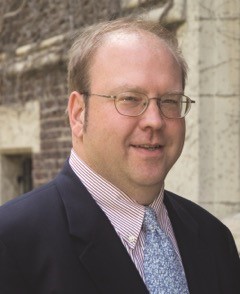
SCSB Colloquium Series - Ted Abel
Description
Date: Wednesday, January 20, 2016
Time: 4:00pm-5:00pm, followed by reception
Speaker: Ted Abel, Ph.D.
Affiliation: Brush Family Professor of Biology and Co-Director, Biological Basis of Behavior Program, University of Pennsylvania
Host: Yea Jin Kaeser-Woo, Ph.D.
Talk Title: Male-Specific Deficits in Reward Learning in Mouse Models of Autism
Abstract: Autism spectrum disorders (ASD) are characterized by disruptions in behavior including restricted interests, repetitive behaviors, and difficulties performing appropriate social interactions. Several theories have been put forward to reconcile how these disparate symptoms might be related. The Social Motivation Hypothesis suggests that ASD symptoms are related to insufficient motivation to pursue reinforcers. In contrast, the Predictive Impairment in Autism Hypothesis suggests that ASD symptoms are related to difficulties in being able to predict the outcomes of events, including ones own actions that might lead to reinforcement. A number of mouse models of genetic lesions associated with ASD have been developed, making it possible to directly test whether loss of function at these ASD-associated genes impact the ability to form action-outcome predictions or to maintain motivation. Dysfunction in the structure and activity of striatal circuitry, which regulates these cognitive domains, has been strongly implicated in the pathophysiology of autism. To test these ideas, we have examined motivation and reward-based learning in male and female mice mimicking chromosomal hemideletion of the human 16p11.2 chromosomal region, or loss of function mutations in either the CNTNAP2 gene or the Shank3b gene, as all of these genetic lesions are strongly linked to ASD. Compared to wildtype mice, 16p11.2del/+ male, but not female, mice have early impairments in the ability to associate a response with a reward as measured by Fixed Ratio responding. Similarly, CNTNAP2 null males were significantly delayed in learning the association between the operant response and reinforcement in the Fixed Ratio task, while CNTNAP2 null females were unaffected. In Shank3b null mice, both sexes were impaired in acquiring the action-outcome association in the Fixed Ratio task. 16p11.2 del/+ males, but not females, showed impairments in motivation as assessed with progressive ratio tests, but neither the CNTNAP2 nor Shank3b males or females showed motivation deficits. Striatal learning deficits in mouse models of ASD may be due to difficulty predicting reinforcement as an outcome of the operant response. Deficits in outcome prediction may be a common phenotype related to genetic lesions associated with ASD.

